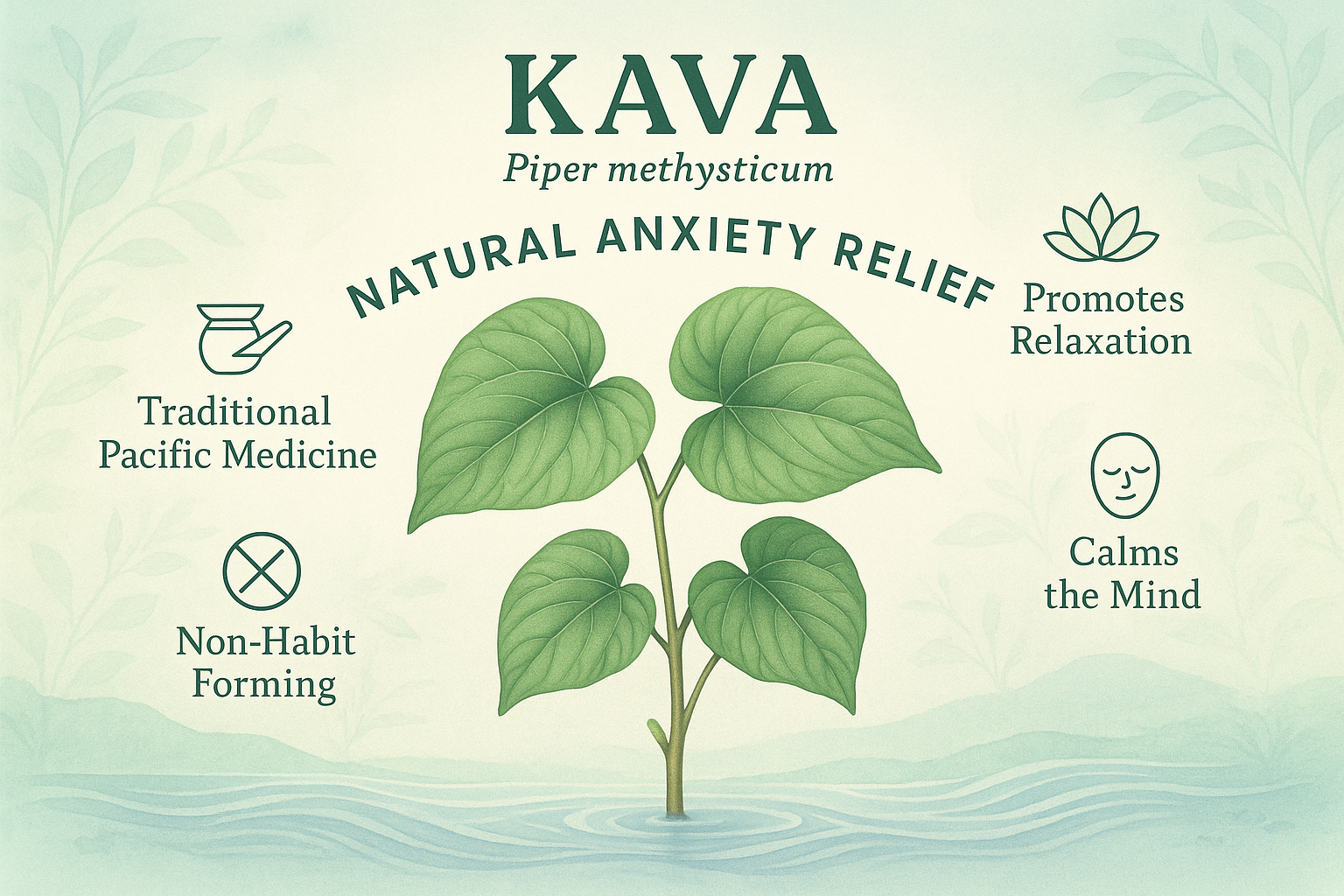Good sleep is essential for our health and well-being. It helps our bodies recover, boosts our brains, and strengthens our immune systems. Sadly, many people have trouble sleeping due to conditions like insomnia, which can greatly affect their daily lives. Struggling with falling asleep, staying asleep, or waking up too early can result in constant tiredness, irritability, and even long-term health problems.
Insomnia affects millions of people around the world, disrupting both nighttime sleep and daytime productivity. Common causes include stress, anxiety, irregular sleep patterns, and too much screen time. While there are medication options available, they often come with unwanted side effects and the risk of dependence.
This brings us to a traditional solution: using herbs to improve sleep. Natural remedies made from plants have been used in various cultures for centuries to promote relaxation and enhance sleep quality. These herbal treatments provide a gentler alternative to medications, focusing on overall wellness.
By exploring the benefits of specific herbs, we can gain valuable insights into how nature's gifts may help us achieve a more peaceful night's sleep.
Understanding Sleep and Its Importance
The Different Stages of Sleep
Sleep is a complex process that involves multiple stages, each playing a crucial role in achieving restorative rest. There are two main types of sleep: Non-Rapid Eye Movement (NREM) sleep and Rapid Eye Movement (REM) sleep.
- NREM Sleep: This stage is further divided into three phases:
- Stage 1: Light sleep where you drift in and out of sleep, easily awakened.
- Stage 2: Onset of true sleep where body temperature drops and heart rate slows.
- Stage 3: Deep sleep, also known as slow-wave sleep, which is essential for physical recovery and growth.
- REM Sleep: This stage occurs about 90 minutes after falling asleep. It's characterized by rapid eye movements, increased brain activity, and vivid dreams. REM sleep is vital for cognitive functions such as memory consolidation and emotional regulation.
Balancing these stages ensures you wake up feeling refreshed and rejuvenated.
The Role of Serotonin and Melatonin
Serotonin and melatonin are key players in regulating our sleep-wake cycle, also known as the circadian rhythm.
- Serotonin: A neurotransmitter that helps regulate mood, appetite, and sleep. During daylight hours, serotonin levels are high, promoting alertness. As the day progresses, serotonin converts to melatonin.
- Melatonin: Known as the "sleep hormone," melatonin signals to your body that it's time to wind down. It peaks during nighttime, facilitating the transition from wakefulness to sleep. Natural light exposure during the day supports healthy melatonin production at night.
Practicing Good Sleep Hygiene
Good sleep hygiene practices are essential for enhancing overall sleep quality. Here are some tips:
- Maintain a Regular Sleep Schedule: Go to bed and wake up at the same time every day.
- Create a Relaxing Bedtime Routine: Engage in calming activities like reading or listening to soft music.
- Optimize Your Sleep Environment: Ensure your bedroom is cool, dark, and quiet.
- Limit Screen Time Before Bed: Reduce exposure to blue light from phones or computers at least an hour before bedtime.
- Be Mindful of Food and Drink Intake: Avoid heavy meals, caffeine, and alcohol close to bedtime.
Adopting these habits can significantly improve your ability to fall asleep and stay asleep through the night.
Common Causes of Sleep Disturbances
Understanding the root causes of sleep disturbances can help you address them effectively. Several factors contribute to sleep issues, ranging from psychological and physical conditions to lifestyle habits.
Psychological Factors
Anxiety and stress are significant contributors to insomnia. When your mind is racing with worries or you're feeling overwhelmed, it's challenging to achieve a restful state. Persistent anxiety can heighten arousal levels, making it difficult for your body to wind down at night. Stress relief herbs like chamomile and valerian root may help mitigate these symptoms and promote relaxation.
Physical Health Conditions
Chronic pain or hormonal imbalances are common physical health issues that disrupt normal sleep patterns. Conditions such as arthritis or fibromyalgia cause discomfort that can keep you awake. Hormonal changes during menopause or thyroid imbalances also interfere with sleep quality. Addressing these underlying health issues often requires a combination of medical treatment and supportive remedies like herbal supplements aimed at alleviating specific symptoms.
Lifestyle Habits
Certain lifestyle choices significantly impact your ability to fall asleep:
- Excessive Screen Time: The blue light emitted by screens interferes with the production of melatonin, a hormone crucial for regulating the sleep-wake cycle. Reducing screen time before bed can improve sleep quality.
- Irregular Sleep Schedules: Inconsistent sleep schedules confuse your body's internal clock, making it hard to establish a regular sleep pattern.
- Diet and Caffeine Consumption: Consuming heavy meals or caffeine close to bedtime can lead to indigestion and restlessness, further disrupting your ability to fall asleep.
Being mindful of these factors can help you make more informed choices that promote better sleep hygiene. Identifying and addressing the root causes of your sleep disturbances is essential for achieving restorative rest.
Overview of Herbs for Better Sleep
A Historical Perspective
Herbs have been used by various cultures for centuries to promote relaxation and improve sleep quality. For instance, ancient Egyptians relied on herbs like chamomile for their calming effects. Traditional Chinese Medicine (TCM) often includes herbs such as valerian root to treat insomnia. Indigenous peoples in North America utilized lavender and passionflower for their soothing properties. These practices demonstrate the long-standing belief in the effectiveness of natural remedies for sleep.
Herbal Remedies vs. Pharmaceutical Options
When comparing herbs for better sleep with pharmaceutical options, several factors come into consideration:
Benefits of herbal remedies:
- Natural composition: Many individuals prefer herbal remedies because they are derived from plants.
- Fewer side effects: Generally, herbs tend to have fewer side effects compared to prescription medications.
- Holistic approach: Herbs often provide additional health benefits beyond their sedative properties.
Drawbacks of herbal remedies:
- Varied effectiveness: The efficacy of herbs can vary significantly between individuals.
- Lack of regulation: Unlike pharmaceuticals, herbal supplements are not always rigorously tested or regulated, which can lead to inconsistencies in quality and potency.
- Potential interactions: Herbs can interact with other medications or medical conditions, requiring caution.
Pharmaceutical options like benzodiazepines or over-the-counter sleep aids offer immediate and consistent results but often come with a higher risk of dependency and adverse side effects.
Growing Popularity of Natural Solutions
There is a noticeable shift towards natural solutions among those seeking alternative approaches to better sleep. The increasing awareness of the potential downsides of long-term pharmaceutical use drives many to explore natural sleep aids. The rise in popularity is also fueled by the wellness industry’s focus on holistic health practices, encouraging individuals to incorporate sedative herbs into their nightly routines. This trend reflects a broader movement towards sustainable and natural living, promoting both mental and physical well-being through time-tested herbal remedies.
Furthermore, exploring herbal and botanical supplements can provide a deeper understanding of these natural alternatives. The use of herbs as natural sleep aids continues to gain traction due to their historical significance, comparative benefits over pharmaceuticals, and growing acceptance within the wellness community.
Key Herbs That Promote Sleep: What You Need to Know Before Trying Them Out!
Valerian Root
Valerian root is renowned for its calming effects on the nervous system. This herb has been used since ancient times to treat insomnia and reduce anxiety.
1. Calming Effects
Valerian root works by increasing levels of gamma-aminobutyric acid (GABA) in the brain, which can help induce relaxation and improve sleep quality.
2. Research Findings
Studies suggest that valerian root may reduce the time it takes to fall asleep and improve overall sleep quality. One study found that participants who took valerian reported better sleep and fewer nighttime awakenings.
3. Potential Side Effects
While generally considered safe, some people may experience side effects like dizziness, headache, or gastrointestinal issues. It's also important to note potential interactions with other medications, particularly those that depress the central nervous system.
Chamomile
Chamomile tea is well-known for its calming effects on anxiety and its ability to promote better sleep.
1. Anxiety Reduction
Chamomile contains apigenin, an antioxidant that binds to certain receptors in the brain, which may decrease anxiety and initiate sleep.
2. Dosage Recommendations
To get the best results, steep one teaspoon of dried chamomile flowers in a cup of hot water for about 10 minutes. Drinking this tea 30 minutes before bedtime can help you unwind.
3. Mild Sedative Properties
Its mild sedative effects make chamomile a popular choice for people looking for natural remedies to treat insomnia without experiencing significant side effects.
Lavender
Lavender essential oil is celebrated for its soothing properties and its role in promoting relaxation through aromatherapy.
1. Relaxation Through Aromatherapy
Lavender's soothing aroma can help calm the mind and body, making it easier to fall asleep. Research indicates that inhaling lavender essential oil before bed can improve sleep quality.
2. Practical Tips
Here are some practical ways to incorporate lavender into your bedtime routine:
- Diffuser: Add a few drops of lavender oil to a diffuser in your bedroom.
- Pillow Spray: Mix lavender essential oil with water in a spray bottle and lightly mist your pillow before going to bed.
- Bath Soak: Adding a few drops of lavender oil to a warm bath can create a relaxing atmosphere conducive to sleep.
Understanding how these herbs work and their potential benefits can guide you in making informed choices about incorporating them into your bedtime routine. Each herb offers unique advantages that cater to different aspects of sleep health, from reducing anxiety to promoting relaxation.
Other Notable Herbs Worth Considering For A Good Night's Rest!
Lemon Balm
Lemon balm (Melissa officinalis) has a long history of use in herbal medicine, particularly for its calming and sleep-promoting properties. Known for its mild sedative effects, lemon balm is often used to alleviate insomnia symptoms and promote restful slumber. Its effectiveness as a natural remedy for sleep disturbances is well-documented, with numerous studies supporting its use (source).
Benefits
- Reduces Anxiety: Lemon balm has been shown to help reduce anxiety levels, which can be a significant factor in sleep disturbances. It's often included in calming products due to its soothing effects.
- Promotes Relaxation: Its calming properties make it a go-to herb for easing the mind and body before bedtime.
Preparation Methods
- Lemon Balm-Infused Honey: Fill a jar with lemon balm leaves, pour honey over them, seal the jar and let it sit for at least two weeks. Use a spoonful in tea or warm water before bed.
- Herbal Blends: Combine lemon balm with other relaxing herbs like chamomile and valerian root. Brew a cup of this blend an hour before bedtime to help ease into sleep.
Ashwagandha
Ashwagandha (Withania somnifera), an adaptogenic herb from Ayurvedic medicine, is celebrated for its ability to manage stress and improve overall sleep quality. Adaptogens help the body adapt to stressors, thereby supporting mental and physical well-being. Research has shown that ashwagandha can significantly improve sleep quality (source).
Benefits
- Regulates Cortisol Levels: Cortisol is a hormone associated with stress. High cortisol levels can disrupt your sleep-wake cycle. Ashwagandha helps regulate cortisol levels throughout the day, promoting better rest at night.
- Improves Sleep Quality: Studies have shown that ashwagandha can increase the amount of time spent in restorative stages of sleep (source).
Usage Tips
- Ashwagandha Powder: Mix ashwagandha powder into warm milk or tea about an hour before bedtime.
- Supplements: Consider taking ashwagandha supplements as part of your nightly routine. Always follow dosage recommendations on the product label.
Both lemon balm and ashwagandha offer unique benefits that can enhance your nighttime routine, promoting more restful and rejuvenating sleep. Whether you choose to incorporate them through teas, infusions, or supplements, these herbs are valuable additions to your natural sleep aid toolkit.
Incorporating Herbs Into Your Bedtime Routine: Practical Tips For A More Restful Slumber!
Incorporating herbs into your bedtime routine can be both simple and effective, enhancing your ability to unwind and prepare for sleep. Here are some practical methods for seamlessly integrating herbs into your nightly rituals without disrupting your regular wind-down activities:
1. Herbal Teas
- Chamomile Tea: Brew a cup of chamomile tea about 30 minutes before bed. It’s easy to make and has calming properties that help ease anxiety, making it an excellent choice for a pre-sleep drink. You can find more about the benefits of herbal teas for anxiety.
- Valerian Root Tea: Although its taste may be strong, valerian root tea can significantly improve sleep quality. This herb is known for its effectiveness as a natural sleep aid. Consider adding honey or lemon to improve its flavor. For more insights, check out this resource on valerian root.
2. Aromatherapy
- Lavender Essential Oil: Add a few drops of lavender oil to a diffuser in your bedroom. Its soothing aroma promotes relaxation and sets the stage for a restful night.
- Pillow Sprays: Spray a blend of calming essential oils like lavender or chamomile on your pillow to create a tranquil sleep environment.
3. Supplements
- Ashwagandha Capsules: Take ashwagandha supplements in the evening to help lower cortisol levels, which can reduce stress-induced insomnia. This herb is widely recognized for its stress-relieving properties.
- Lemon Balm Extracts: Liquid extracts or capsules of lemon balm can be taken before bed for their sedative effects.
4. Herbal Baths
Combine dried herbs such as lavender, chamomile, and valerian root in a muslin bag and add it to your bathwater. A warm herbal bath can relax your muscles and calm your mind.
5. Bedtime Snacks
Prepare a small snack infused with calming herbs, like lemon balm-infused honey on toast or yogurt with chamomile extract, to enjoy 1-2 hours before bedtime.
Experiment with different methods to find what works best for you. By seamlessly integrating these herbal remedies into your nightly routine, you can enhance relaxation and improve overall sleep quality without significant changes to your existing habits.
Safety Considerations When Using Herbal Remedies For Better Sleep Quality
Safety precautions when trying out herbal remedies are essential to ensure you benefit from their sleep-promoting properties without adverse effects. Consulting with healthcare professionals before starting any new herbal treatment regimen is crucial, especially if you have pre-existing medical conditions or take prescription medications regularly.
Key Points to Consider:
1. Consultation with Healthcare Providers:
- Pre-existing Medical Conditions: Some herbs can interact negatively with chronic illnesses such as heart disease, diabetes, or liver disorders.
- Prescription Medications: Herbs like valerian root and kava kava may interfere with medications, altering their effectiveness or causing harmful side effects.
2. Research and Evidence:
Always look for reputable sources and scientific studies that back the efficacy and safety of the herb you're considering. Not all herbs have robust clinical evidence supporting their use.
3. Dosage and Preparation:
Follow recommended dosages carefully. Overconsumption of certain herbs can lead to toxicity and other health issues. Proper preparation methods can also affect the potency and safety of herbal remedies.
4. Allergic Reactions:
Be mindful of potential allergies. Conduct a patch test if using topical applications like lavender essential oil.
Practical Tips:
- Start with small doses to observe how your body reacts.
- Maintain a journal to track any changes in sleep patterns or side effects.
- Purchase herbs from reliable sources to ensure quality and purity.
Taking these precautions helps you harness the benefits of herbal remedies safely, paving the way for better sleep quality without compromising your health.
Conclusion: An Invitation To Explore The Benefits Of Nature's Sleep Solutions!
Experimenting with herbs for better sleep can be a rewarding journey towards improved rest and overall well-being. You are encouraged to take an active role in enhancing your sleeping habits by exploring safe and effective herbal remedies tailored to your specific needs.
Key Takeaways:
- Valerian Root: Calming effects on the nervous system.
- Chamomile: Reduces anxiety before bedtime.
- Lavender: Promotes relaxation through aromatherapy.
By integrating these natural solutions into your nightly routine, you may discover the profound benefits of using herbs for better sleep. It's a personalized approach that not only focuses on alleviating insomnia but also enhances the quality of your rest. Explore and find what works best for you.
FAQs (Frequently Asked Questions)
Why is good sleep important for overall health?
Good sleep is essential for overall health and well-being as it allows the body to repair itself, supports cognitive function, and helps regulate mood. Poor sleep can lead to various health issues, including weakened immune response and increased risk of chronic conditions.
What are some common causes of insomnia?
Common causes of insomnia include psychological factors like anxiety and stress, physical health conditions such as chronic pain or hormonal imbalances, and lifestyle habits like excessive screen time or irregular sleep schedules.
How do herbs help improve sleep quality?
Herbs have been used throughout history in various cultures to promote relaxation and improve sleep quality. They can provide natural alternatives to pharmaceutical options by addressing the underlying causes of insomnia, such as anxiety or stress.
What are some key herbs that promote better sleep?
Key herbs that promote better sleep include Valerian root, known for its calming effects; Chamomile, which helps reduce anxiety; and Lavender essential oil, praised for its soothing properties through aromatherapy.
Are there any safety considerations when using herbal remedies for sleep?
Yes, it is crucial to consult with healthcare professionals before starting any new herbal treatment regimen, especially if you have pre-existing medical conditions or are taking prescription medications. This ensures safety and prevents potential interactions.
How can I incorporate herbs into my bedtime routine?
You can incorporate herbs into your bedtime routine by drinking herbal teas or taking supplements as part of your nightly rituals. This can be done without disrupting your regular wind-down activities, helping you create a calming environment conducive to better sleep.







Leave a comment
This site is protected by hCaptcha and the hCaptcha Privacy Policy and Terms of Service apply.